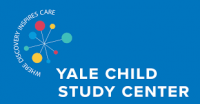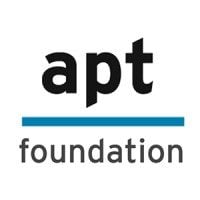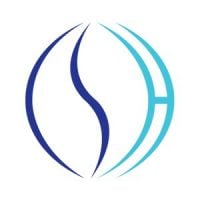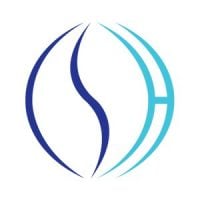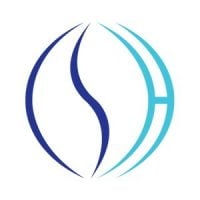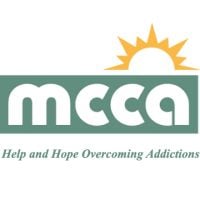Yale University Child Study Center - In Home Treatment Services
Drug Rehab Center in New Haven, Connecticut
The Yale University Child Study Center - In Home Treatment Services offers addiction and substance abuse treatment services in New Haven, Connecticut, using a multidisciplinary approach to care and providing evidence-based treatment options such as cognitive-behavioral therapy, medication-assisted treatment, and support groups.
About Yale University Child Study Center - In Home Treatment Services in Connecticut
The Yale University Child Study Center - In Home Treatment Services provides a comprehensive range of addiction and substance abuse treatment services to individuals and families in the New Haven, Connecticut area. This center is dedicated to providing evidence-based care utilizing a biopsychosocial approach to treatment. Their team of professionals includes psychiatrists, social workers, psychologists, and other highly trained personnel, allowing for a multidisciplinary approach to care.
The Yale University Child Study Center - In Home Treatment Services offers a variety of treatment options for addiction and substance abuse, such as cognitive-behavioral therapy, behavioral interventions, individual and family therapy, and support groups. They also provide medical management, medication-assisted treatment, intensive outpatient programs, and detoxification services for those suffering from addiction. The center also provides access to resources for individuals who are transitioning back into their communities, such as housing and employment services.
Yale University Child Study Center - In Home Treatment Services is an accredited member of the Connecticut Department of Mental Health and Addiction Services and is a recipient of the Department of Health and Human Services Mental Health and Substance Abuse Services Accreditation. They are also a participant in the American Society of Addiction Medicine and are a certified provider of the American Society of Addiction Medicine and the American Psychological Association. Yale University Child Study Center - In Home Treatment Services is committed to providing the highest quality of care and treatment to their clients and their families.
Genders
Ages
Modality
Additional
Conditions and Issues Treated
When someone in struggles with both addiction and mental or emotional illness, this is considered a dual diagnosis. Dual diagnosis treatment can include therapy for these issues to happen simultaneously, which will allow either of them to be treated effectively.
Sometimes people who have suffered from addiction disorder also suffer from co-occurring disorders such as depression, anxiety, bipolar disorder, etc., making them “dual diagnoses.” Dual diagnoses require specialized treatment programs where drug and alcohol addiction are addressed along with psychiatric illnesses. Some rehabilitation facilities provide patients suffering from cooccurrences a program with highly integrated services and a clean environment with few distractions to help them succeed.
Levels of Care Offered
This center offers a variety of custom treatment tailored to individual recovery. Currently available are Dual-Diagnosis, Outpatient, with additional therapies available as listed below.
Outpatient treatment is often used for drug addicts in drug rehab. Outpatient treatment consists of counseling and therapy sessions. This form of treatment is also called ‘day-treatment’. The outpatient treatment process begins with the addict’s initial detox period, lasting about ten days.
Outpatient treatment is used for those who are at moderate risk for ‘slipping back’ into the addiction, for those who:
- Are not currently experiencing any side effects from withdrawal and can handle social pressure
- Can handle stressors that might trigger relapse
- Have a stable living environment or have moved out of their previous environment, which was not conducive to being sober
- Have a support system that allows them to go to a facility a few times a week while still keeping their current responsibilities
- Have no legal obligations, being either on parole or probation, that require them to seek treatment at a mandatory facility
- Are not currently experiencing any side effects from withdrawal and can handle social pressure
- Have a stable living environment or have moved out of their previous environment, which was not conducive to being sober
Therapies & Programs
Because no single treatment is effective for all addicts, the goal of treatment and therapy should be to figure out what works best for each individual. Tolerance and withdrawal levels differ from person to person, affecting the treatment intensity required. Addiction treatment should aim to help addicts develop healthy coping mechanisms for dealing with their addiction and its underlying causes.
Couples therapy works with clients and significant others in a professional capacity to improve relationship dynamics. This can be helpful for addicts who are trying to marry the idea of recovery into their work, family, social lives – any aspect that has to do with relationships. Through counseling sessions, addicts will have an opportunity to talk about their addiction with professional partners.
Family therapy is beneficial for people who are in addiction treatment services because it offers addicts the opportunity to work with their family members to better understand what led them to make choices that contributed to their addiction.
This type of therapy helps family members reach a deeper understanding of how they can best support their loved one during recovery. It also helps the addict better understand their own motivations and triggers that led them to turn to substance abuse.
Family therapy can help addicts in the following ways:
- Assists family members in processing difficult feelings so they don’t blame or resent recovering addicts
- Assists family members in understanding how addiction has impacted the addict and everyone who is involved with them
- Allows the addict to take responsibility for their actions, while encouraging improved communication skills
- Helps family members understand how to best support an individual in recovery so addicts don’t relapse again.
Group therapy can help build a stronger support system and give addicts in New Haven, CT insight into their addiction that they gain through shared conversations. Group therapy occurs in a controlled group environment, exclusive of one on one meetings. This makes it safer for patients to feel comfortable sharing the struggles they’re going through and gaining perspective.
Cognitive-behavioral therapy is a technique that is used to help people with addiction. Specifically, it is a way of identifying thoughts and behaviors that cause the addiction. It is typically used in an individual counseling session.
The content explains cognitive behavioral therapy and how it works to address some behaviors that may be leading to unintended consequences in their life, as well as its benefits for those seeking sobriety.
It works by helping people to talk through their issues and addressing the thoughts that cause said behaviors. It is an excellent way of learning about oneself and one’s perception of the world.
Payment Options Accepted
For specific insurance or payment methods please contact us.
Is your insurance accepted?
Ask an expert, call (888) 674-0062
Additional Details
Specifics, location, and helpful extra information.
New Haven, Connecticut 6511 Phone Number(203) 785-6862 Meta DetailsUpdated November 25, 2023
Staff Verified
Yale University Child Study Center - In Home Treatment Services Patient Reviews
There are no reviews yet. Be the first one to write one.
New Haven, Connecticut Addiction Information
Connecticut has a higher rate of substance abuse and addiction than the national average. The state ranks in the top 10 in the country for illicit drug dependence among those ages 18 to 25. In 2010, there were 9,211 people admitted to an alcohol treatment facility for alcohol abuse combined with a secondary drug. Connecticut ranked fifth in the United States of America for the number of fatalities involving drunk driving in 2014.
There are 9,000 people addicted to drugs in New Haven, Connecticut. The most common drugs are methamphetamines and marijuana. Alcohol is also abused by many residents. 20% of Connecticut residents have a substance abuse disorder, and 28,409 people died from drug overdoses in 2015. Drug treatment centers in New Haven, CT, offer detoxification. The therapeutic portion of treatment may involve individual counseling, group therapy, and recreational activities.
Treatment in Nearby Cities
- Durham, CT (17.8 mi.)
- Avon, CT (35.2 mi.)
- Branford, CT (6.5 mi.)
- New Milford, CT (30.9 mi.)
- Norwich, CT (46.9 mi.)
Centers near Yale University Child Study Center - In Home Treatment Services
The facility name, logo and brand are the property and registered trademarks of Yale University Child Study Center - In Home Treatment Services, and are being used for identification and informational purposes only. Use of these names, logos and brands shall not imply endorsement. RehabNow.org is not affiliated with or sponsored by Yale University Child Study Center - In Home Treatment Services.
